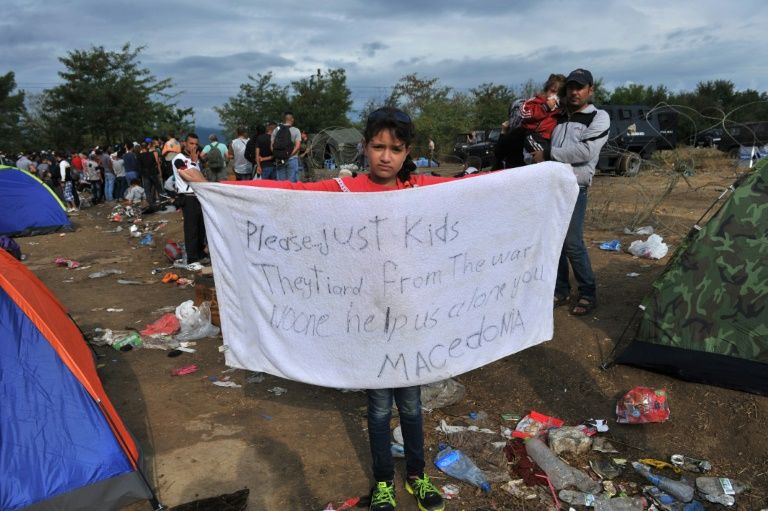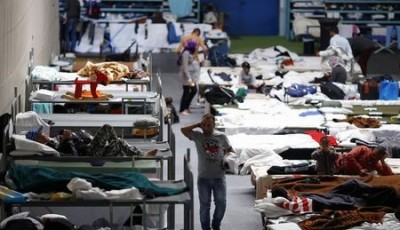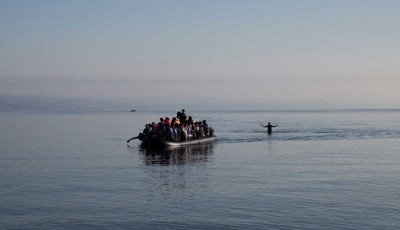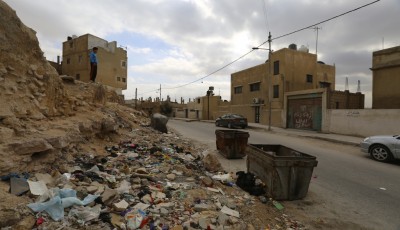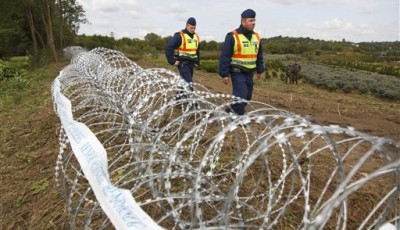Thousands of EU-bound migrants are allowed to cross Macedonia
After entering Serbia, the migrants, fleeing wars and poverty, are heading towards EU-member Hungary from where they want to continue further north to richer EU countries, such as Germany and Sweden.
Hundreds of migrants crossed unhindered from Greece into Macedonia after overwhelmed security forces appeared to abandon a bid to stem their flow through the Balkans to western Europe following days of chaos and confrontation.
The tumult started when police decided to allow a small group of migrants with young children to cross the frontier and crowds in the back squeezed them toward the shielded police wall.
Al Jazeera reporting from Gevgelija on the Macedonian side of the border, said the refugees were boarding trains to take them from Macedonia to Serbia.
Some of the migrants had spent days in the open with little or no food or water after Macedonia declared a state of emergency Thursday and sealed its borders to them, many refugees from war in Syria and other conflicts in the Middle East. They cross the Mediterranean to arrive in Greece and then travel north through Serbia to reach Hungary and Europe’s borderless Schengen zone.
“I’ve been here for days”. “Some of them are happy that they are over the Macedonian border”.
“We see them taking their old parents with them in wheelchairs, these people are coming mostly from refugee producing countries like Syria”. More than 160,000 have arrived so far in Greece, mostly crossing in inflatable dinghies from the nearby Turkish coast, an influx that has overwhelmed Greek authorities. About 45,000 crossed through Macedonia over the past two months.
Once they reach Serbia, many migrants and refugees try to make their way to Hungary, which is a major crossing point into the EU, although the country is building a four-metre (13-foot) barbed wire fence along its 175-kilometre border to stop the influx. Few, if any, want to remain in Greece, which is in the grip of a financial crisis, or impoverished Macedonia, which, like Serbia, is not yet in the EU.
Macedonian police tried to portray the decision to let the migrants through as part of a controlled policy to avoid future bottlenecks and violent confrontations, although the move will raise fears that it will simply encourage more.
The coastguard said 22 rescue operations were carried out on Saturday for motorised rubber dinghies and fishing boats, all crammed with migrants desperate to reach Europe’s southern shores.
Kotevsky said Macedonia was trying to do its best to protect the refugees, who had been “practically expelled from Greece”. The organization asked for more help because supplies are still needed for the new arrivals.
In Geneva, the global Federation of Red Cross and Red Crescent Societies (IFRC) said “greater levels of collaboration and collective effort are necessary in order to manage the humanitarian needs of those affected”.
Hours ago, Italy’s foreign minister made it clear that the crisis is getting out hand, the country has already taken in more than 100,000 migrants this year.
